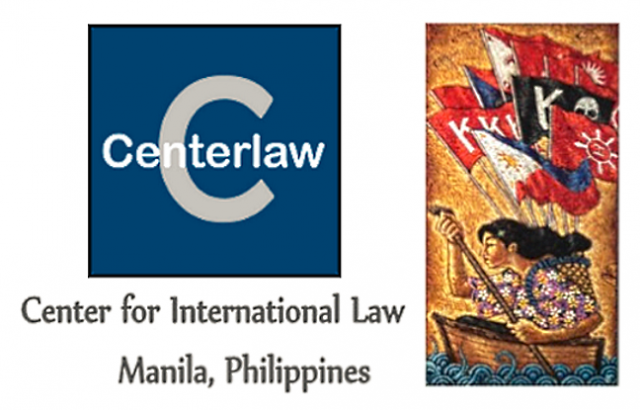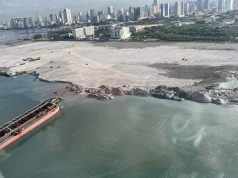The Center for International Law (Centerlaw) on Thursday said President Duterte’s decision to withdraw from the International Criminal Court gives the false impression that agents of the state can continue perpetuating a culture of impunity and even evade international accountability for crimes against humanity.
These state actors include government agents, especially the police force – men and officers of the Philippine National Police (PNP) spearheading the anti-drug war campaign.
“Centerlaw shares our people’s fear that this attempt to withdraw from the ICC will plunge the country deeper into the quagmire of impunity – one that has already claimed thousands of lives,” the NGO said in a statement.
“Contrary to the President’s claim, the Rome Statute became effectual as domestic law when the Senate gave its concurrence to the Rome Statute in 2011, in accordance with Art. VII Sec. 21 of the Philippine Constitution. This is a point well established in our constitutional jurisprudence known as the doctrine of transformation.”
In contrast with the contention of the Office of the President, Centerlaw contended that there is no further requirement of publication in any newspaper of general circulation “to make the treaty binding upon the Philippines.
“In fact, the Philippines now has an International Humanitarian Law Act, Republic Act 9851, which allows our courts to try cases cognizable by the ICC under the principle of complementarity.
“The President’s claim that we embraced membership in the ICC on false representations of complementarity by its international proponents is erroneous. The country in fact had a leading participation in the establishment of the ICC, as the Philippines actively participated in the drafting of the Rome Statute.”
Centerlaw pointed out that the Philippine delegation brought with them to the Rome Conferences in 1998 “our rich jurisprudential heritage in international criminal law, borne of our country’s tragic experience in World War II, and embodied in the landmark war crimes cases of top generals of the Japanese Imperial Army – Tomoyuki Yamashita and Shegonori Kuroda.
“ICC’s initiation of preliminary examination on [the Duterte administration’s] drug war does not deny him his right to due process and his right to be presumed innocent until proven otherwise.
“Even if the process progresses to the investigation proper, he will be accorded his right to contest the charges, or even disclaim the Court’s jurisdiction to try him.”
The principle of complementarity implies that ICC acquires jurisdiction over a situation if the state party is unable or unwilling to prosecute international crimes happening within its territory that are cognizable by the ICC.
The attempt to withdraw from the ICC, therefore, will not save anyone responsible for crimes against humanity from the ICC’s jurisdiction, Centerlaw argued. “The rules of the ICC are clear that it has jurisdiction over crimes committed in a state’s territory while the latter was a party to the Rome Statute.”










